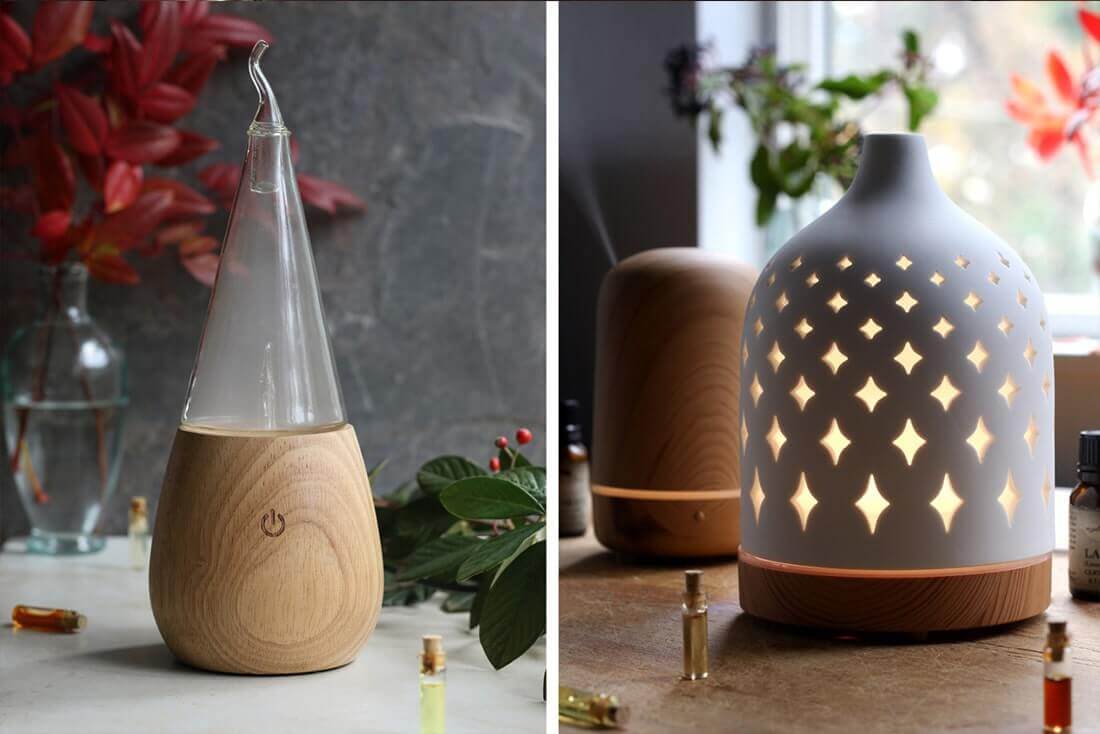A whiff of fragrance, the lingering aroma of flowers, or a swirl of some exotic incense and we are, in that moment, transported to a place of great beauty and utmost calm. Such is the power of smell. It heals, it calms, and it takes us to a place within ourselves that we hardly remember – our inner sanctuary.
Ancient healing systems used aromatics extensively. Aromas such as magic smoke, or the smell that arose from crushed petals or leaves of a plant, were found to soothe and calm, and even rejuvenate the mind and to some extent, the body. This practice of using aromas to heal, both mind and body, crystallised over centuries into what we now call aromatherapy. And in aromatherapy what we mainly use are essential oils.
Essential oils contain the purest aromas. They are also the most concentrated. These oils are extracted from various plants and contain the core essence of the plant along with its unique fragrance. Most of these oils are extracted through a process of steam distillation or they are cold pressed which means they contain no solvents.
In India, traditional practices use essential oils in many ways. If you go back to when grandmothers held sway over our lives, you will remember the clove oil that was dabbed on a tooth throbbing with pain. Camphor oil was rubbed on chests congested with a bad cold. There were hot baths with tulsi and eucalyptus in the winter and monsoons, and with neem in the summers when all kinds of infectious diseases ran rampant especially where children were concerned. The boiling of the leaves – tulsi and neem, released their oils in the water which was like using their essential oils, but in a less concentrated form.
There also was the pursuit of pleasure with which came the pampering of the senses with rose oil, oil of jasmine, sandalwood and that of the champa, kewra, gulhina, and kadamba and other such flowers. The last five oils were basically attars, or ittars –perfume oils extracted from flowers, resin or stem of carefully selected plants. These were used directly to anoint the body or put into bathing water. While these oils scented the skin they also worked in soothing the senses, calming the mind and giving the user a sense of well-being.
Sandalwood oil (among others like Kewra and Kadamba) was also used in the worship of our gods. It is said to be the purest of all essences and one that connects us directly with God.
Today we live in a world that is well informed and aware of different dimensions that cover health and well-being. Myriad spiritual practices are quite prevalent across generations. Essential oils have therefore taken on a larger and deeper significance in our lives. We make lifestyle choices based on many parameters – environmental issues, health issues, ethical issues and spiritual issues. A large percentage of us are moving towards using natural and organic products – be it skincare, topical healthcare or non-invasive body-care. And in most of these natural products that we choose, essential oils have a marked presence.
There is also the interesting phenomenon of people today making their own well-being products at home. Soaps, creams, lotions, aromatic body oils, toothpaste and shampoo, just to name a few. All of these require essential oils and those who make them have a well-stocked essential oil cupboard.
In spiritual practices, especially in meditation, we use organic incense, scented candles, aroma dispensers and direct application of scented oils on various points along the meridians that run through our body. All of these contain essential oils.
If we look at the numerous essential oils available for the individual consumer today it is evident that we are spoiled for choice. Oils like Peppermint, Tea Tree, Bergamot, Lavender, Lemongrass and the ones like Orange, Lemon and Ylang Ylang along with Basil, Eucalyptus and Patchouli are some of the more commonly used oils but the demand for other rarer, more exotic oils is growing by the day as people understand the benefits of using essential oils in everyday life.
Essential oils are here to stay. We cannot ignore their presence anymore. They blend into our life and soothe our mind, body and our soul and take us on a path of elevated awareness. That is their job. If we allow them to take over our lives, it will be a rich and rewarding experience and one that will lead to our ultimate well-being in tandem with other holistic practices.




Leave a Reply